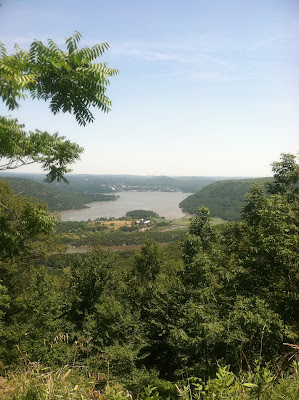Why I Am A Christian
When I decided to leave the pastoral ministry for teaching in a public school, an acquaintance asked me whether I had lost my faith. I replied, "On the contrary, I am more orthodox than ever!" The change was largely vocational--not a matter of conviction.
Over the years I have succumbed to what G. K. Chesterton called the "romance of orthodoxy." This romance is not a kind of will o' the wisp feeling generated by reading Chesterton and C.S. Lewis accompanied by pints of ale and good pipe tobacco. Neither does it stem from reaction to modernity with its aversion to the supernatural for the empirical, much less is it a reaction to post-modernity with its love of chaos and disavowal of any order or meaning to things. No. My Christian orthodoxy is no rejoinder to some assertion that I previously held, it is but rather a romance with truth and beauty, with permanence transcending a transitory existence, with purpose and meaning beyond the ephemeral, with God.
Others might say that I am orthodox because of my age. That is what older people do. They stick with what is to them tried and true, safe and secure. Not always and certainly not in my case. My AARP membership has nothing to do with my beliefs. I do not find in orthodoxy a refuge from the ravages of time, a longing for the "good old days" when everyone, it seemed, believed in God and went to church. Age also has the potential for the opposite. As some people get older, they become more disillusioned with the idealism of their earlier lives. Convictions fail and faiths falter. Neveertheless, my faith is not a symptom of the onset of aging.
Others will call my romance with Christian orthodoxy a psychological fixation, a result of fears and insecurities yearning for resolution in religious certainties. Recall the old Freudians saying that religious people need a Big Daddy in the sky who will make everything right. Then there are the Jungians who embrace religious imagery in a mystical soup of symbols and "archetypes" of realities in this life. People who know me would like to pin my orthodox faith to my insecurities, a kind of counterfoil to Woody Allen's neurotic atheism. Same condition. Different solutions. Well, that critique comes up as shallow as Karl Marx's allegation that religion is "opium." If it is a narcotic drug used by the Capitalist manipulators of the poor and downtrodden, then religion must be something hard-wired to the human psyche because it works. John Calvin made this observation 300 years before Marx. If my orthodox faith is something arising out of my neuroses, then so is atheism or any other belief system for that matter. Maybe my emotional makeup has some connection with my beliefs, but it certainly does not establish or define them.
Then there are the cultural elite who say that my orthodox faith is a direct result of my social and economic upbringing. Growing up lower middle class Catholic in New York City during the Fifties and Sixties has shaped me into the believer that I am today. Not! I've met individuals who maintain a tenuous connection with their religious past even though they long ago distanced themselves from those beliefs. Reminds me of journalist and author Pete Hamill's self description, "I am a recovering Catholic." The cultural shell of a belief is harder to shed than its theological core.
My own path took me further afield. Raised in a rather loosely-sometimes religious sometimes irreligious-home, I went to an old-fashioned Catholic grammar school where the faith was instilled with hellfire and swats of a pointer stick by teachers more than willing to whip young boys into shape. I fled to variously opposing camps seeking a refuge from such extreme religiosity. One summer in my 15th year, I checked out a Spanish pentecostal church in the South Bronx only to be turned off by the excessive emotionalism and a strictness I was trying to flee. By 18, the lure of Ayn Rand's militant libertarianism and hardcore atheism pulled me into the illusion of the heroic individual whose greatest virtue, in Rand's own words, is selfishness. Three years later, that allure lost its luster and I started doubting my doubts about God. Going from one extreme to the other at different times during late adolescence and early young adulthood, my wanderings landed me back to God. Rejecting religious extremes, I betook to one of the mainline Protestant denominations and served it as a student and clergyman. Yet in none of these cases, could one accuse me of maintaining the cultural religious path inherited from my parents.
Well then, what is this romance of orthodoxy that I have? It is a firm conviction that the assertions of the historic Christian faith are true, that Jesus really is the Messiah, the Son of the Living God with whom I have a personal relationship. It is an unfaltering commitment to the tenets of the Nicene Creed. My regard for Scripture, the faith tradition, liturgical worship, and the church as beloved community, remain strong. My world view is bullishly larger than the life that shapes it, as described by my favorite poet, Gerard Manley Hopkins: "The world is charged with the grandeur of God."
And just possibly, while everyone else might weigh in on why this educated, 57-year-old still holds to an outdated belief system, I'll bet that no one considered one final possibility: that God might have had something to do with it.
And just possibly, while everyone else might weigh in on why this educated, 57-year-old still holds to an outdated belief system, I'll bet that no one considered one final possibility: that God might have had something to do with it.

Comments